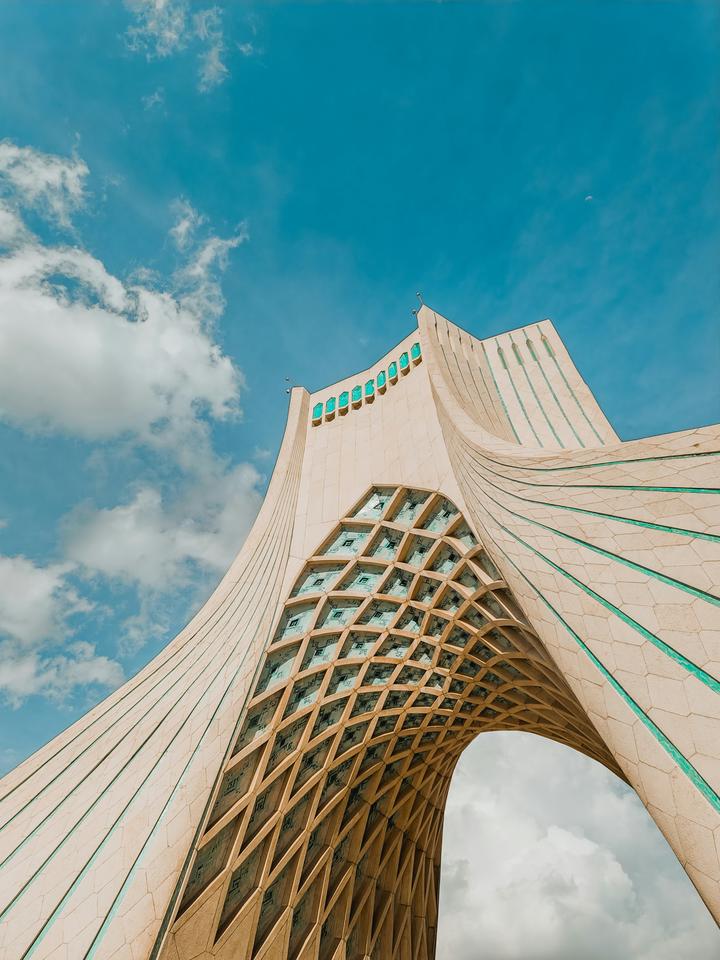Eau Clare, Wi. (Special to Informed Comment; Feature) – On Friday, June 13th, Israel launched attacks on Iranian nuclear, military, and civilian targets, just days before the scheduled sixth round of Iran-U.S. nuclear negotiations. The resulting twelve-day exchange culminated in U.S. airstrikes on Iran’s nuclear facilities at Natanz, Isfahan, and Fordow on June 22, followed by a ceasefire declaration from President Donald Trump the next day. The Trump administration claimed that the strikes had obliterated Iran’s nuclear infrastructure, setting back its program by years. However, this assertion was made despite skepticism within the intelligence community and without conclusive satellite or field intelligence—raising concerns about the rashness of such early proclamations.
President Trump’s decision to support Israel’s unauthorized assault carries significant long-term consequences for both Israel and the region. The fragile ceasefire may collapse, risking a broader regional war that could entangle global powers like China and Russia, spike fuel and commodity prices, destabilize the Persian Gulf Cooperation Council (GCC) countries, and lead to widespread loss of life.
In the long term, this miscalculated intervention is likely to accelerate Iran’s drive toward nuclear threshold status. The ambiguity surrounding the extent of the damage, combined with Iran’s existing stockpile of over 400 kilograms of 60% enriched uranium, provides the political leadership in Tehran ample justification to quietly push forward. The conflicting narratives regarding the damage, suspension of IAEA oversight, and potential withdrawal from the Nuclear Non-Proliferation Treaty (NPT) open the door to covert enrichment activity without a definitive move toward weaponization.
This outcome was foreseeable. Iran’s deeply rooted and extensive civilian nuclear infrastructure is not easily dismantled by military strikes. Thanks to Prime Minister Netanyahu and his allies, the United States finds itself embroiled once again in another protracted conflict in the Middle East.
Israel’s ambition for regime decapitation in Iran—whether through direct military means or fostering political instability—remains deeply flawed. Even absent regime change, both Tel Aviv and Washington seem to believe that weakening the Iranian government will mitigate regional threats and delay nuclear development. But this view fundamentally misrepresents the nature of the conflict. Iran’s friction with the West is not just about nuclear capability; it is rooted in its anti-imperialist orientation and regional posture, which intertwines with conflicts in Palestine (Gaza), Syria, Lebanon, and Yemen.
Much of the discourse surrounding the Israel-Iran conflict is shaped by mainstream global media outlets or social platforms driven by ideological or financial motives. In today’s era of information overload and post-truth narratives, it’s easy for observers to lose sight of the deeper structural, historical, and ideological dimensions. The Israel-Iran war is no exception. It is important to challenge several widespread myths, particularly those perpetuated by Western media such as the BBC, Reuters, and others:
- Western hostility toward Iran is solely about its nuclear program.
This is misleading. The 1979 Iranian Revolution directly challenged global norms by adopting an independent, non-aligned stance—echoing the 1950s Non-Aligned Movement but with a distinctly anti-imperialist ideology. Iran’s nuclear ambitions were initially supported by the United States during the Shah’s reign. The West’s backing of Iraq during its chemical warfare against Iran, followed by the invasions of Afghanistan, Iraq, Libya, Syria, and Yemen, only reinforces Tehran’s belief that nuclear capability equates to regime survival. For Iran, nuclear decisions are driven by state security, not offensive intent.
- Iranian politics are ideological and irrational.
This is far from accurate. The Islamic Republic is neither wholly Islamic nor entirely republican. Like Israel, it features complex state-society dynamics where religion plays a pivotal role. Iran’s hybrid political system combines democratic and authoritarian elements, relying on elections—flawed as they may be—for legitimacy. Its foreign policy, contrary to popular portrayals, is pragmatic and strategic. Iran has effectively employed its cultural and ideological capital to extend its influence across the region.

Photo of Tehran’s Azadi [Freedom] Monument by Shayan Hamidi on Unsplash
- Iran is a pariah state.
Not exactly. While Iran does engage with non-state actors like Hezbollah, Hamas, and the Houthis, labeling them as mere proxies oversimplifies a more nuanced reality. The broader appeal of these groups stems from popular grievances and the enduring resonance of anti-imperialist and anti-Zionist sentiment. Iran’s influence is rooted not just in arms and money, but in the deep ideological and political vacuum across the Arab world—characterized by unaccountable governments, weak legal institutions, and restricted civic participation.
- Iran poses an existential threat to Israel.
This claim overlooks the broader context. Israel possesses an extensive nuclear arsenal and enjoys unyielding support from the United States and NATO. It has frequently violated the sovereignty of neighboring states and is currently conducting a military campaign in Gaza that many international bodies have condemned as genocidal. A nuclear-capable Iran could serve as a counterweight, introducing a balance of power that might deter Israeli aggression and stabilize the region—just as mutual deterrence did during the Cold War between nuclear powers.
- A nuclear Iran will trigger regional nuclear proliferation.
This is unlikely. Many regional states—including the UAE, Saudi Arabia, Turkey, and Egypt—already have civilian nuclear programs and are under Western security umbrellas. Proliferation is less about mimicry and more about perceived threats to state security. Iran has already proposed a multilateral nuclear consortium to build trust and transparency. Such an initiative could align with IAEA oversight and reassure its neighbors, but the recent escalation undermines this possibility.
Ultimately, the so-called Iranian threat has been exaggerated. Tehran’s core concern is regime survival amid persistent sanctions, military threats, and global isolation. Its anti-imperialist and anti-Zionist stances resonate across the region. If the objective is to last for peace and security, the answer lies not in warfare but in diplomacy. Iran’s historical depth, geographic size, and strategic resources position it as a key regional player. Recognizing its legitimate desire for independence and development could contribute to resolving the Palestinian issue and pave the way for broader reforms across the Middle East.


 © 2026 All Rights Reserved
© 2026 All Rights Reserved